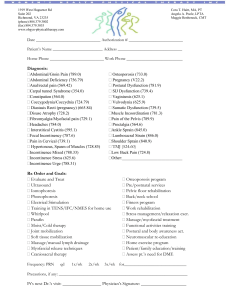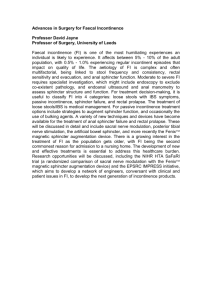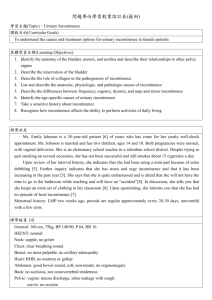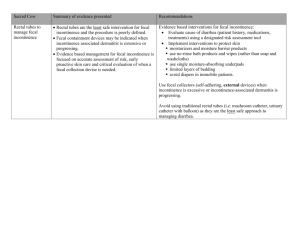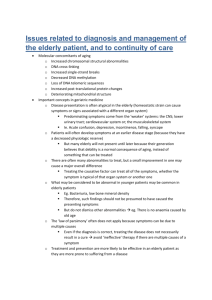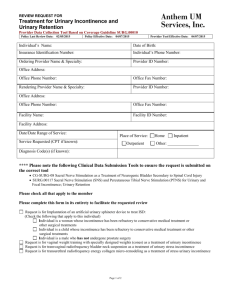Surgical treatment of Stress Incontinence
advertisement
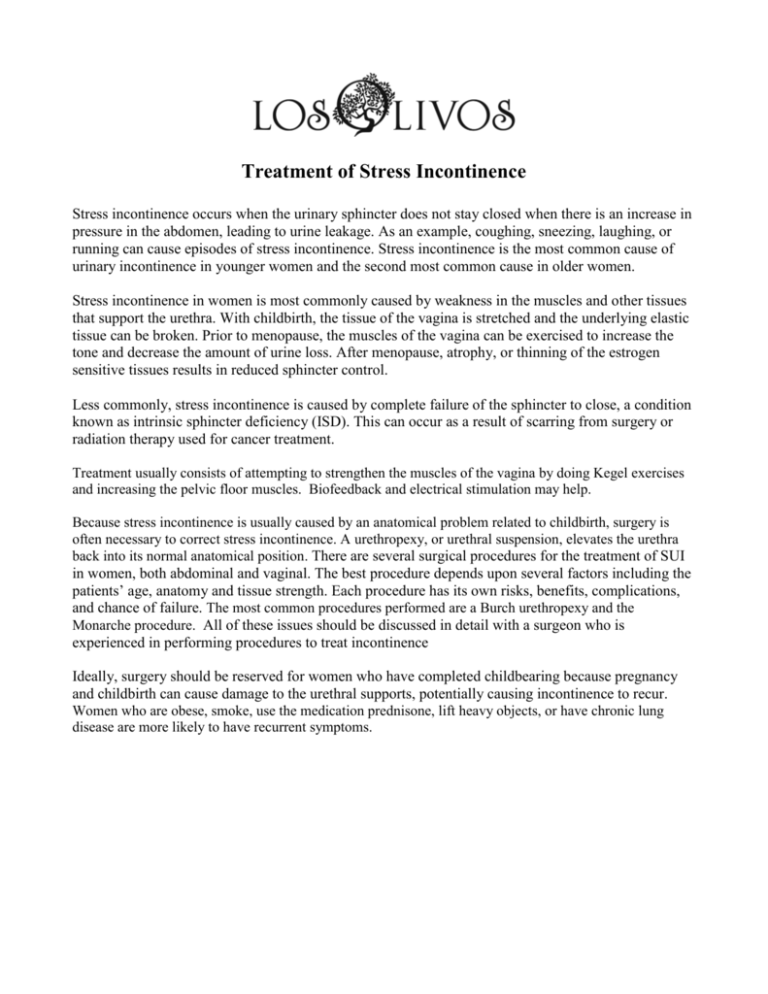
Treatment of Stress Incontinence Stress incontinence occurs when the urinary sphincter does not stay closed when there is an increase in pressure in the abdomen, leading to urine leakage. As an example, coughing, sneezing, laughing, or running can cause episodes of stress incontinence. Stress incontinence is the most common cause of urinary incontinence in younger women and the second most common cause in older women. Stress incontinence in women is most commonly caused by weakness in the muscles and other tissues that support the urethra. With childbirth, the tissue of the vagina is stretched and the underlying elastic tissue can be broken. Prior to menopause, the muscles of the vagina can be exercised to increase the tone and decrease the amount of urine loss. After menopause, atrophy, or thinning of the estrogen sensitive tissues results in reduced sphincter control. Less commonly, stress incontinence is caused by complete failure of the sphincter to close, a condition known as intrinsic sphincter deficiency (ISD). This can occur as a result of scarring from surgery or radiation therapy used for cancer treatment. Treatment usually consists of attempting to strengthen the muscles of the vagina by doing Kegel exercises and increasing the pelvic floor muscles. Biofeedback and electrical stimulation may help. Because stress incontinence is usually caused by an anatomical problem related to childbirth, surgery is often necessary to correct stress incontinence. A urethropexy, or urethral suspension, elevates the urethra back into its normal anatomical position. There are several surgical procedures for the treatment of SUI in women, both abdominal and vaginal. The best procedure depends upon several factors including the patients’ age, anatomy and tissue strength. Each procedure has its own risks, benefits, complications, and chance of failure. The most common procedures performed are a Burch urethropexy and the Monarche procedure. All of these issues should be discussed in detail with a surgeon who is experienced in performing procedures to treat incontinence Ideally, surgery should be reserved for women who have completed childbearing because pregnancy and childbirth can cause damage to the urethral supports, potentially causing incontinence to recur. Women who are obese, smoke, use the medication prednisone, lift heavy objects, or have chronic lung disease are more likely to have recurrent symptoms.
